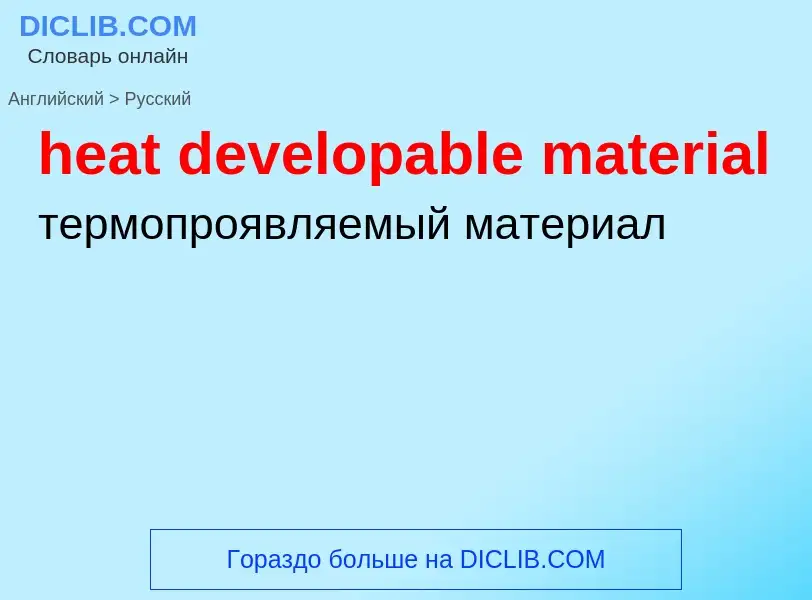Translation and analysis of words by ChatGPT artificial intelligence
On this page you can get a detailed analysis of a word or phrase, produced by the best artificial intelligence technology to date:
- how the word is used
- frequency of use
- it is used more often in oral or written speech
- word translation options
- usage examples (several phrases with translation)
- etymology
heat developable material - translation to russian
общая лексика
ребро возврата
Definition
Wikipedia

A radiant barrier is a type of building material that reflects thermal radiation and reduces heat transfer. Because thermal energy is also transferred by conduction and convection, in addition radiation, radiant barriers are often supplemented with thermal insulation that slows down heat transfer by conduction or convection.
A radiant barrier reflects heat radiation (radiant heat), preventing transfer from one side of the barrier to another due to a reflective, low emittance surface. In building applications, this surface is typically a very thin, mirror-like aluminum foil. The foil may be coated for resistance to the elements or for abrasion resistance. The radiant barrier may be one or two sided. One sided radiant barrier may be attached to insulating materials, such as polyisocyanurate, rigid foam, bubble insulation, or oriented strand board (OSB). Reflective tape can be adhered to strips of radiant barrier to make it a contiguous vapor barrier or, alternatively, radiant barrier can be perforated for vapor transmittance.







![radiation]]. radiation]].](https://commons.wikimedia.org/wiki/Special:FilePath/Hot metalwork.jpg?width=200)
